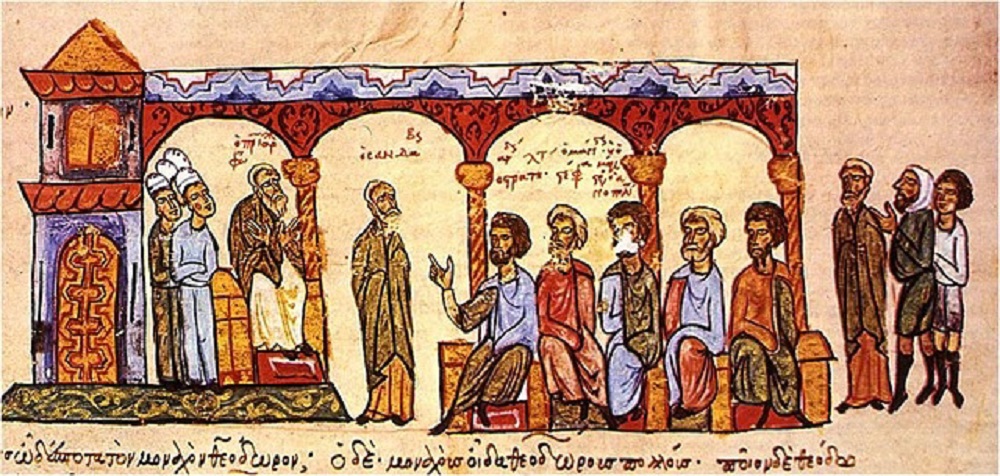
The conference will be attended by renowned university teachers and researchers from Greece and Europe with special knowledge of the issues of education in Byzantine Thessaloniki, in order to contribute to the promotion of the city’s intellectual culture at an international level.
According to EleniGlyatziArveler, ‘Byzantine Thessaloniki is undoubtedly the first city that has the characteristics of Europe. This is because it was the first, being Greek-born, having a glorious Roman past [the existence of its monuments proves this], the first in Europe, this Greco-Roman city received the gospel of Christianity from Paul, the Apostle to the Gentiles, thus completing the elements that make up the European world”. For centuries Thessaloniki was the symbolic centre of the Byzantine Empire, not only at the political and economic level but first and foremost at the level of education. Unfortunately, this aspect of the city’s history has not been highlighted and remains in obscurity.
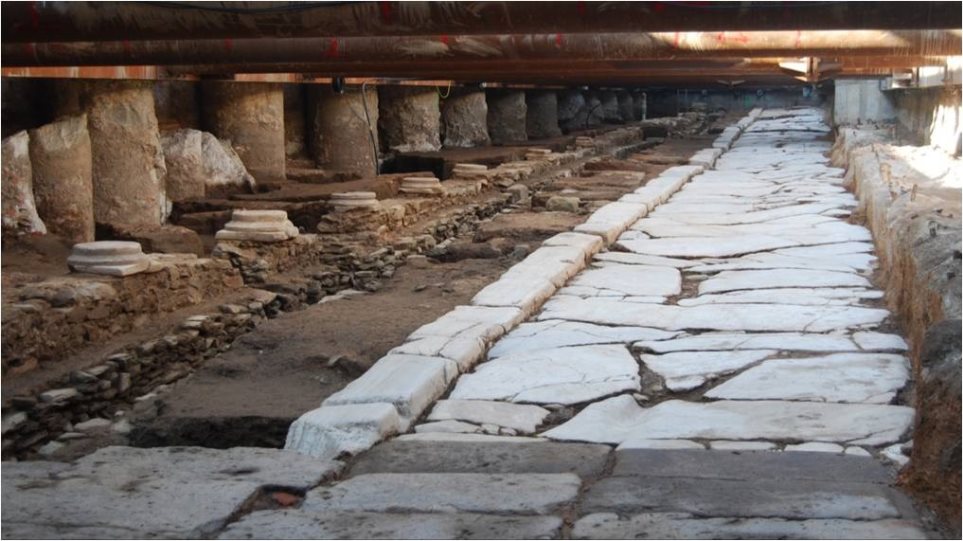
O Decumanus Maximus στον σταθμο της Αγιας Σοφιας / Decumanus Maximus at Ag. Sofia station
The aim of the conference is to highlight Byzantine Thessaloniki as an important centre of education, comparable to that of Constantinople. It is the city which during the Byzantine period and for many centuries kept the flame of Greek education in all its aspects (theological, legal, classical, political) unquenched. Teachers, schools, students, scholars, intellectuals, and intellectuals formed a network of education and culture that was articulated in the city and made it a particularly important intellectual beacon of the Greek-Byzantine world.
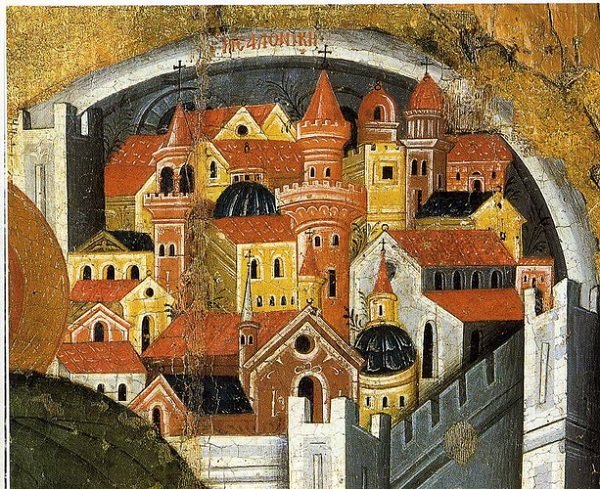 Βυζαντινή Θεσσαλονίκη / Byzantine Thessaloniki (www.pemptousia.gr)
Βυζαντινή Θεσσαλονίκη / Byzantine Thessaloniki (www.pemptousia.gr)
The conference will highlight intellectual anchors who worked and taught in Thessaloniki, such as Leo the mathematician, Eustatius of Thessaloniki, Thomas Magistros and Demetrius Triclinius, and will explore the issue of the city’s schools and school practice. The city schools teach and comment on both the ecclesiastical writers and the ancient writers (Homer, Aeschylus, Euripides, Pindar). Particularly in the 14th century, when the city had a multitude of teachers, scholars and intellectuals, Thessaloniki is compared in the sources with ancient Athens and its intellectual achievements.
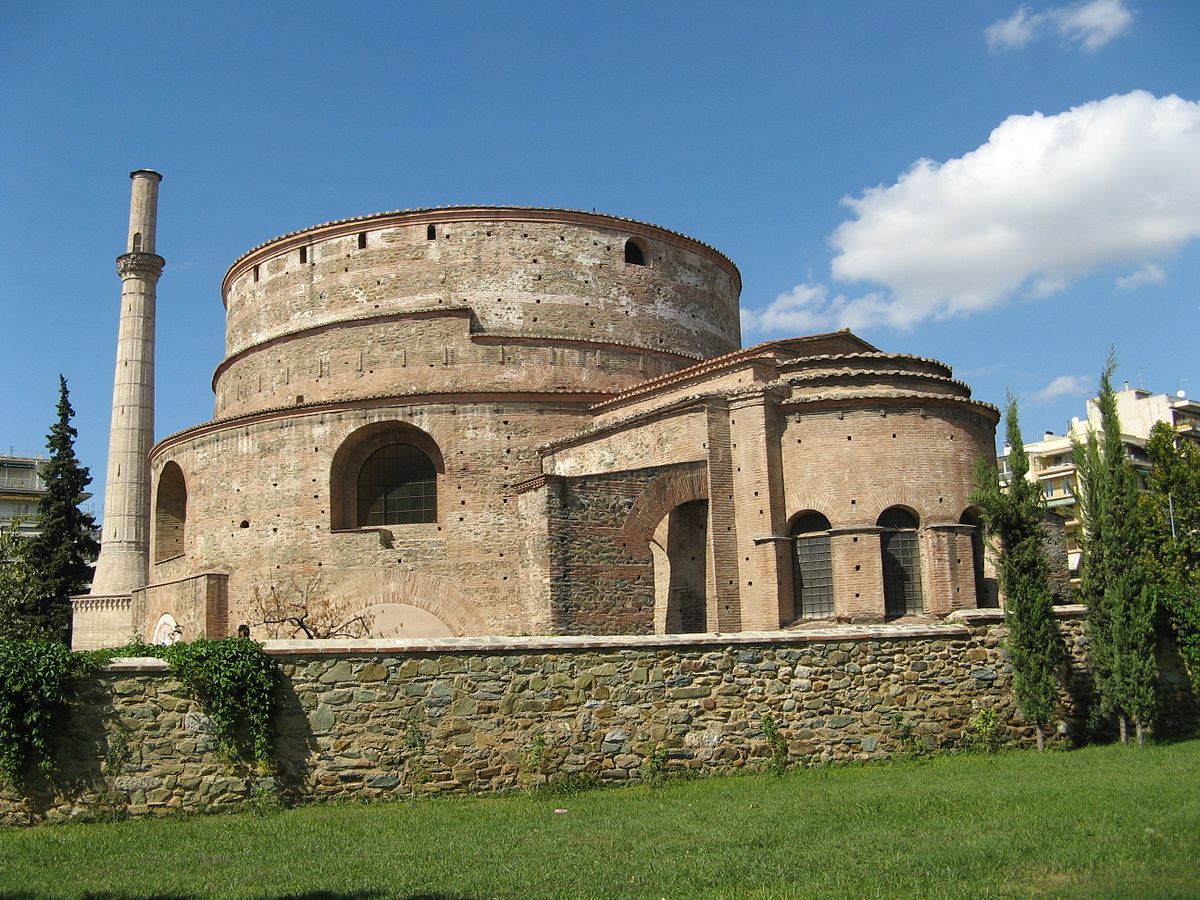
Ροτόντα / Rotunda
INTERNATIONAL CONFERENCE ‘EDUCATION IN BYZANTINE THESSALONIKI’
Organizers
Municipality of Thessaloniki
Friends of the History Centre of the Municipality of Thessaloniki
Organising Committee
AngelikiDelikari, Rev. Professor of the Department of History and Archaeology of the Aristotle University of Thessaloniki.
FilippomariaPontani, Professor of the Department of Humanities of the University Ca’ Foscari of Venice
Vassilis Sarris, Doctor of Philology, Aristotle University of Thessaloniki.
StefaniaTanimanidou, Deputy Mayor of Intermunicipal Cooperation and Hellenism Abroad
Maria Tataya, Dr. of Law of the Aristotle University of Thessaloniki, Director General of the Municipality of Thessaloniki
THE CONFERENCE PROGRAMME
THURSDAY 5 May 2022
LAF Thessaloniki Price Hall
Opening event
19.00 Greetings
President. Professor of the Department of History and Archaeology, Aristotle University of Thessaloniki, Greece.
19:30 Keynote speech: FilippomariaPontani, Prof. of Humanitarian Studies at the University Ca’ FoscariIn Venice
You were, you are erased, you are reborn. Education in Thessaloniki and its eras.
20:10 – 20:30 A musical journey by the Symphony Orchestra of the Municipality of Thessaloniki.
20:30 Dinner in honour of the participants
FRIDAY 6 MAY
Thessaloniki History Centre Conference Hall
SECOND CONFERENCE
09:00 Registration
President. AnthoniosRgakos. Prof. of Phililogy at the University of Thessaloniki
09:40 Panagiotis Antonopoulos (Ioannina). An indirect testimony to the existence of a flourishing education in Thessaloniki in the first half of the 6th century.
10:00 EkateriniTsekoura (Athens). The actions of the Philosopher and Mathematician Leontos as archboisho of Thessaloniki.
10:20 IliasNesseris (Vienna). The Thessaloniki Archbishop Michael Mytilineos (11th centuary) and hiw unpublished hagiological work.
10:40 Salvatore Costanza (Athens): The ancient Greek and Roman games according to the commentaries of Eustatius of Thessaloniki
11:00 Discussion
11:30 Break
11:11 P.M. 11:11 P.M.
Chairman: DimitriosNikitas, Professor Emeritus of the Aristotle University of Thessaloniki, Greece
12:00 Simeon Paschalidis (Thessaloniki). Education in Old Testament Thessaloniki through the sources of the Hesychastics.
12:20 Daniele Bianconi (Rome). Written Culture and Intellectual Circles during the Palaeologan Age.
11:00 Discussion
11:30 Break
11:11 P.M. 11:11 P.M.
Chairman: DimitriosNikitas, Professor Emeritus of the Aristotle University of Thessaloniki, Greece
12:00 Simeon Paschalidis (Thessaloniki). Education in Old Testament Thessaloniki through the sources of the Hesychastics.
12:20 Daniele Bianconi (Rome). Written Culture and Intellectual Circles during the Palaeologan Age.
12:40 Ilias Taxidis (Thessaloniki): The intellectual movement of Thessaloniki in the epistolary literature of the Palaeologan Age.
13:00 Dimitris Agoritsa (Ioannina). Intelectuals of Thessaloniki in the cyrlce of Manuel II Palaiologos and education: data and issues.
13:20 – 13:50 Discussion
14:00 P.M. – 4:00 P.M.
President.
17:15 FevroniaNousia (Patras).
17:35 Francesco Giannachi (Lecce).
17:55 GuliaGerbi (Venice): myth and school practice from a Byzantine schoolbook. The refutation and confirmation exercises in the RhetoricaMarciana.
18:15 Niels Gaul (Edinburgh) The old as new? Thomas Magistros’smeletai and the localisation of learning in late Byzantine Thessaloniki.
18:35 -19:00 Discussion
19:00 Break
FIFTH SESSION
Chairman. EmiliosMavroudis, Prof. of the Department of Philology, Aristotle University of Thessaloniki.
19:15 Maria Tziatzi (Komotini).
19:35 Demosthenes Stratigopoulos (Komotini).
19:55 Luigi Silvano (Torino): Between school paraphrase and moral rewriting: Manuel Gabalas’ Wandering of Odysseus.
20:15 -20:45 Discussion
SATURDAY 7 MAY Conference Hall of the Thessaloniki History Centre
SIXTH CONFERENCE
President: Dr. Despina Tsourka – Papastathi, Legal Historian
09:40 VassilisKatsaros (Thessaloniki). Vasilis Katsaros: Tracing the paths of communication between Thessaloniki and Constantinople during the period of the Renaissance of Andronicus II Palaiologos.
10:00 TheodorosGiagou (Thessaloniki). The works of Matthew Vlastaris as texts of canonical and pastoral education.
10:20 Vassilis Sarris (Thessaloniki). The historical writing of Archbishop Efstathios as a text of political education.
10:40 Konstantinos Kotsiopoulos (Thessaloniki). Contemporary implications of the political education in the 14th century.
11:00 Discussion.
11:30 Break
11:11 P.M.
Chairman: FilippomariaPontani, Professor of the Department of Humanities, University Ca’ Foscari of Venice
11:45 Katerina V. Katherine Corre (Venice):
“Theatre of Reading”: public reading in medieval Thessaloniki
12:05 Paola Carmela La Barbera (Venice – Paris).
12:25 Discussion
12:40 Final conclusions: AngelikiDelikari (Thessaloniki)
CLOSING OF THE CONFERENCE

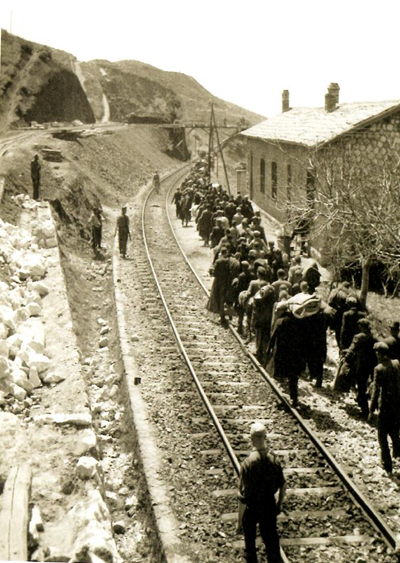
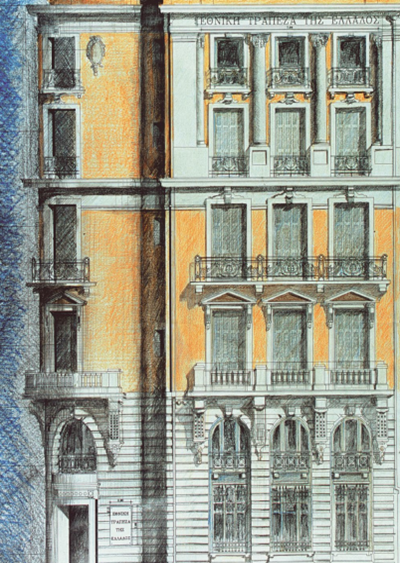
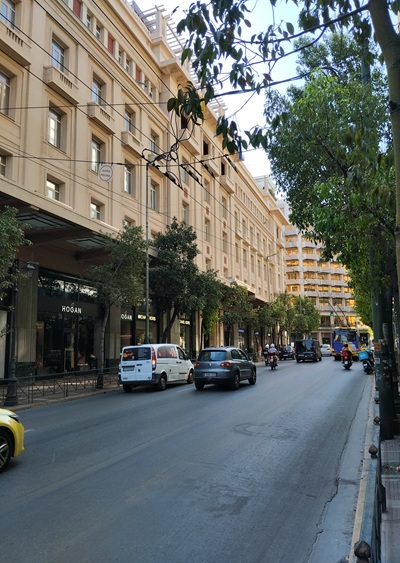
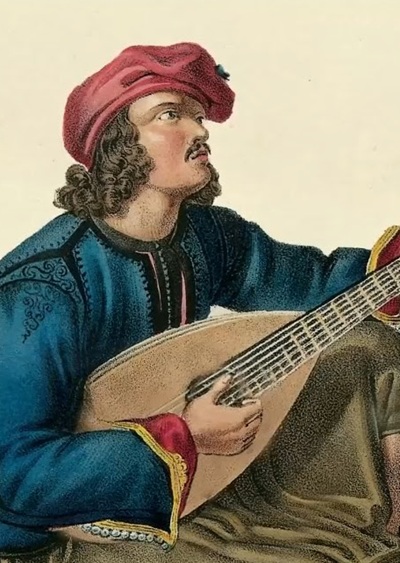


Leave A Comment